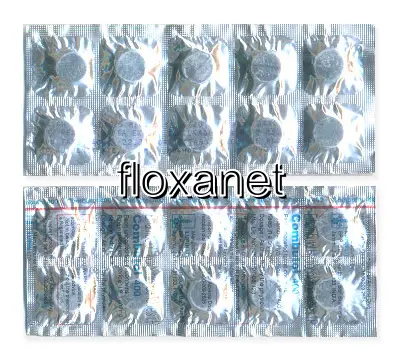| Package | Dosage | Price | Price per Dose | |
|---|---|---|---|---|
| Dosage: 200mg | ||||
| 360 pill | 200mg | £122.42 | £0.34 | |
| 270 pill | 200mg | £99.78 | £0.37 | |
| 180 pill | 200mg | £72.01 | £0.40 | |
| 120 pill | 200mg | £51.43 | £0.43 | |
| 90 pill | 200mg | £40.11 | £0.44 | |
| 60 pill | 200mg | £24.68 | £0.41 | |
| 30 pill | 200mg | £14.39 | £0.46 | |
| Dosage: 400mg | ||||
| 360 pill | 400mg | £177.97 | £0.49 | |
| 180 pill | 400mg | £101.84 | £0.57 | |
| 120 pill | 400mg | £76.12 | £0.64 | |
| 90 pill | 400mg | £62.75 | £0.70 | |
| 60 pill | 400mg | £42.17 | £0.71 | |
| 30 pill | 400mg | £25.71 | £0.86 | |
| Dosage: 600mg | ||||
| 360 pill | 600mg | £240.73 | £0.67 | |
| 270 pill | 600mg | £191.35 | £0.71 | |
| 180 pill | 600mg | £136.82 | £0.76 | |
| 120 pill | 600mg | £99.78 | £0.83 | |
| 90 pill | 600mg | £77.15 | £0.85 | |
| 60 pill | 600mg | £52.46 | £0.87 | |
| 30 pill | 600mg | £28.80 | £0.96 | |
| Dosage: 800mg | ||||
| 360 pill | 800mg | £284.97 | £0.79 | |
| 180 pill | 800mg | £168.71 | £0.94 | |
| 120 pill | 800mg | £124.47 | £1.04 | |
| 90 pill | 800mg | £104.93 | £1.16 | |
| 60 pill | 800mg | £76.12 | £1.27 | |
| 30 pill | 800mg | £41.14 | £1.37 | |

Ethambutol Hydrochloride Description
Overview of Ethambutol Hydrochloride
Ethambutol Hydrochloride is an important medication used primarily in the treatment of tuberculosis. It belongs to the class of drugs known as antimycobacterial agents. Its main role is to inhibit the growth of Mycobacterium tuberculosis bacteria. This medication is usually prescribed as part of a combination therapy to effectively combat tuberculosis infections. Ethambutol is valued for its ability to target bacterial cell wall synthesis, which helps to prevent the bacteria from multiplying and spreading within the body.
How Ethambutol Works
Ethambutol Hydrochloride works by interfering with the synthesis of the bacterial cell wall. Specifically, it inhibits the enzyme arabinosyl transferase, which is essential for building the mycobacterial cell wall. Without a strong cell wall, the bacteria become more vulnerable and cannot reproduce effectively. This makes Ethambutol an effective agent in managing active tuberculosis cases. The medication is usually administered alongside other anti-tubercular drugs to enhance overall treatment efficacy.
Usage and Dosage
The dosage of Ethambutol Hydrochloride varies depending on the patient's age, weight, and the severity of the infection. It is typically taken once daily, with or without food. Healthcare providers often start with a specific dose and adjust it according to the patient's response and tolerance. It is crucial to follow the prescribed treatment plan closely to prevent drug resistance. Regular blood tests may be necessary to monitor the medication’s effect and to check for potential side effects.
Potential Benefits of Ethambutol Hydrochloride
Many patients find Ethambutol to be an effective component of tuberculosis treatment. It helps to shorten the duration of therapy and improve treatment success rates. When used correctly, it can significantly reduce the bacterial load in the body. Patients often experience symptom relief as the bacteria are eradicated more efficiently. Besides its role in active disease management, Ethambutol may also be prescribed in latent tuberculosis infections in specific cases.
Possible Side Effects and Precautions
While Ethambutol Hydrochloride is generally effective, it can cause side effects in some patients. The most common concern is optic neuritis, which may lead to blurred vision or color blindness, especially with prolonged use or high doses. Regular eye examinations are recommended during treatment. Other side effects may include headache, nausea, dizziness, or skin rash. Patients with pre-existing eye conditions or liver problems should inform their healthcare provider before starting therapy. Proper monitoring helps to minimize risks and ensures safe use of the medication.
Conclusion
Ethambutol Hydrochloride is a vital drug in the fight against tuberculosis. Its mechanism of action makes it an effective tool in combination therapy, helping to control and eradicate the infection. However, careful adherence to prescribed doses and regular medical monitoring are essential to ensure safety and maximize benefits. Patients should communicate openly with their healthcare providers about any adverse effects or concerns during treatment. When used responsibly, Ethambutol can contribute significantly to successful tuberculosis management.